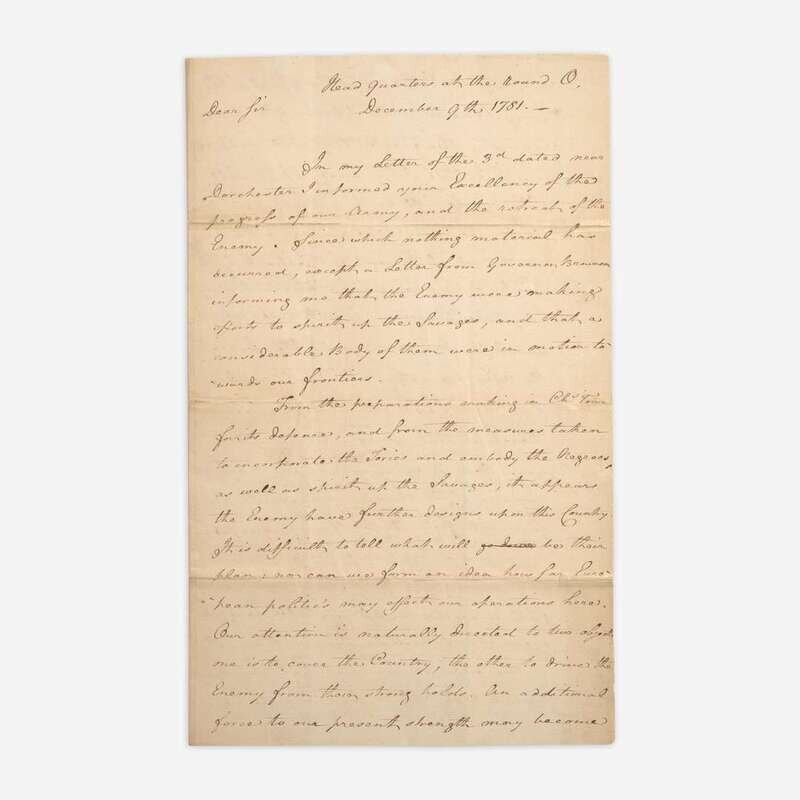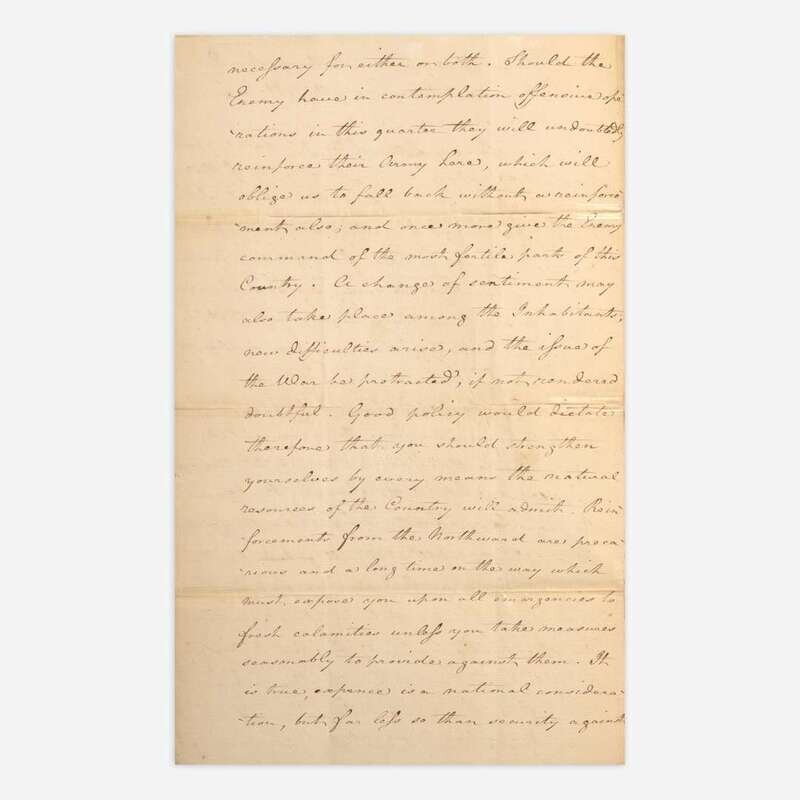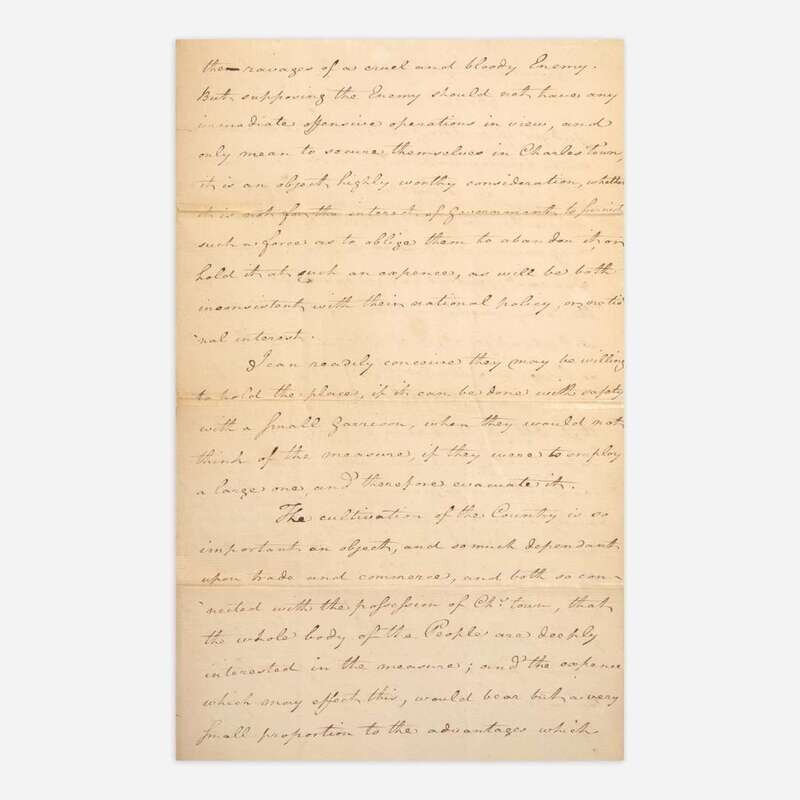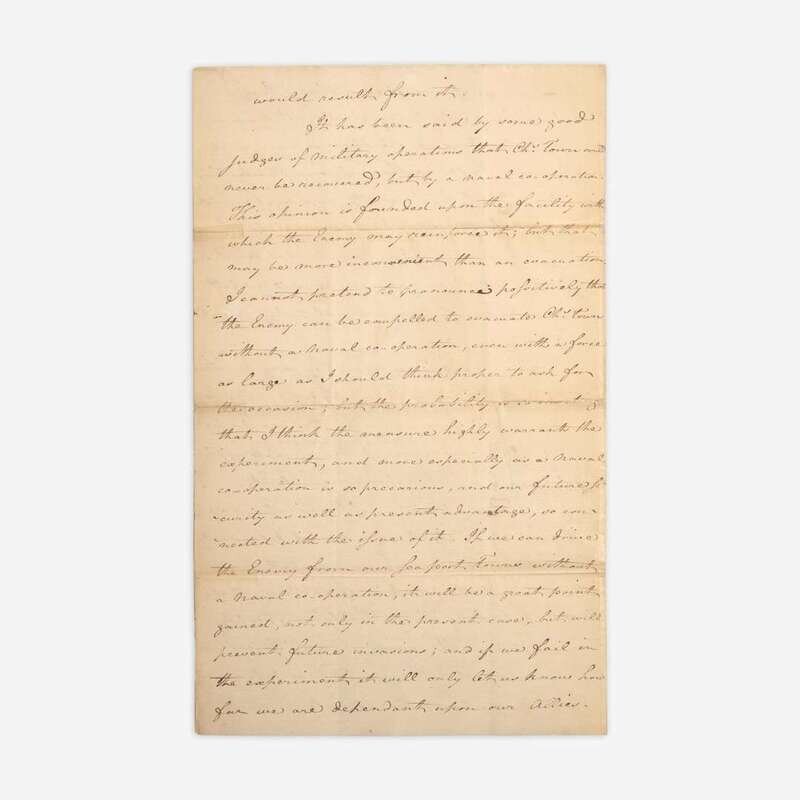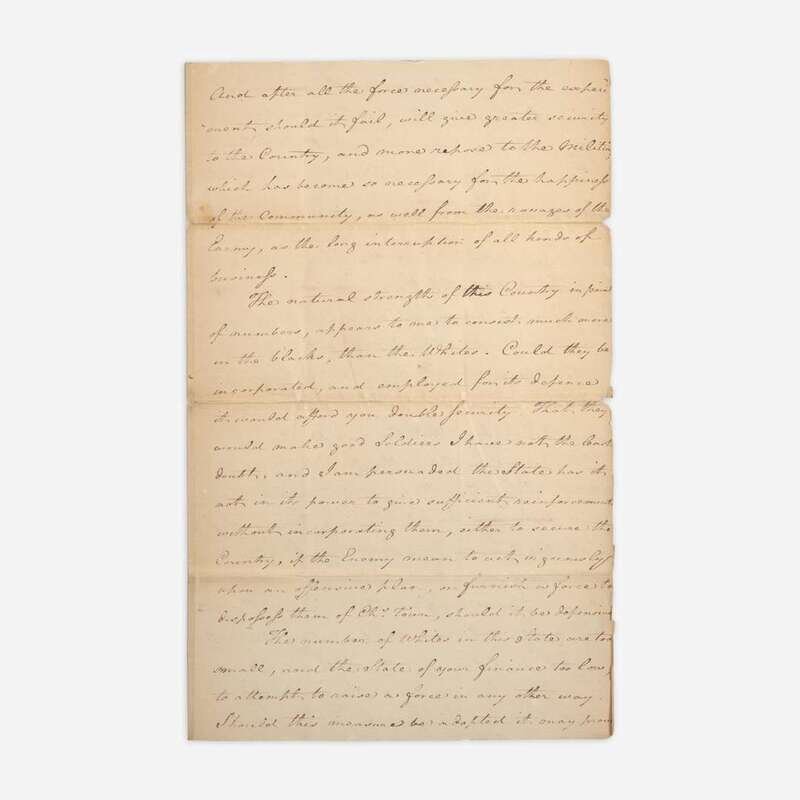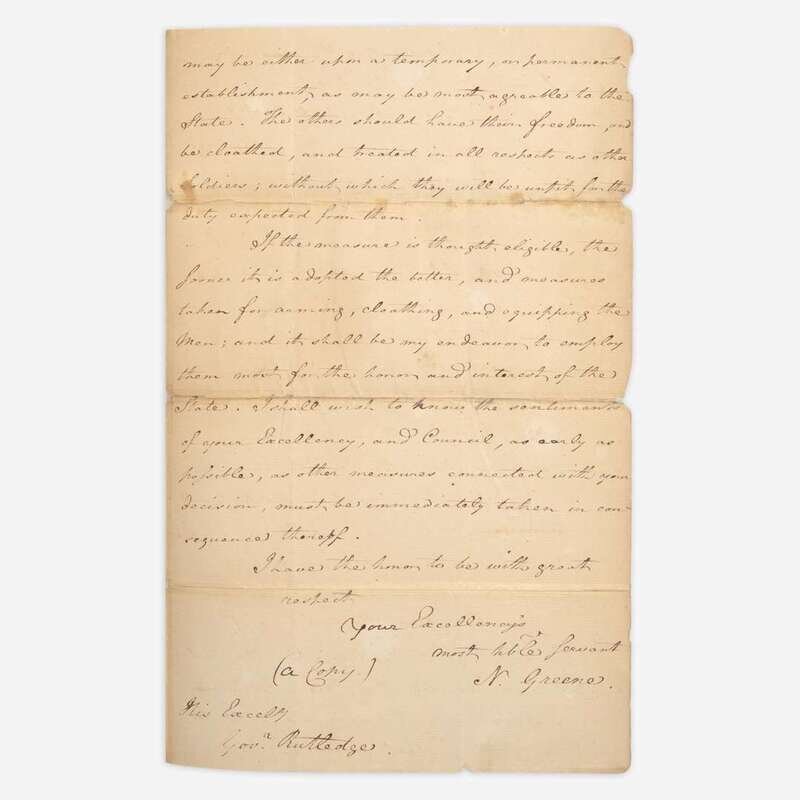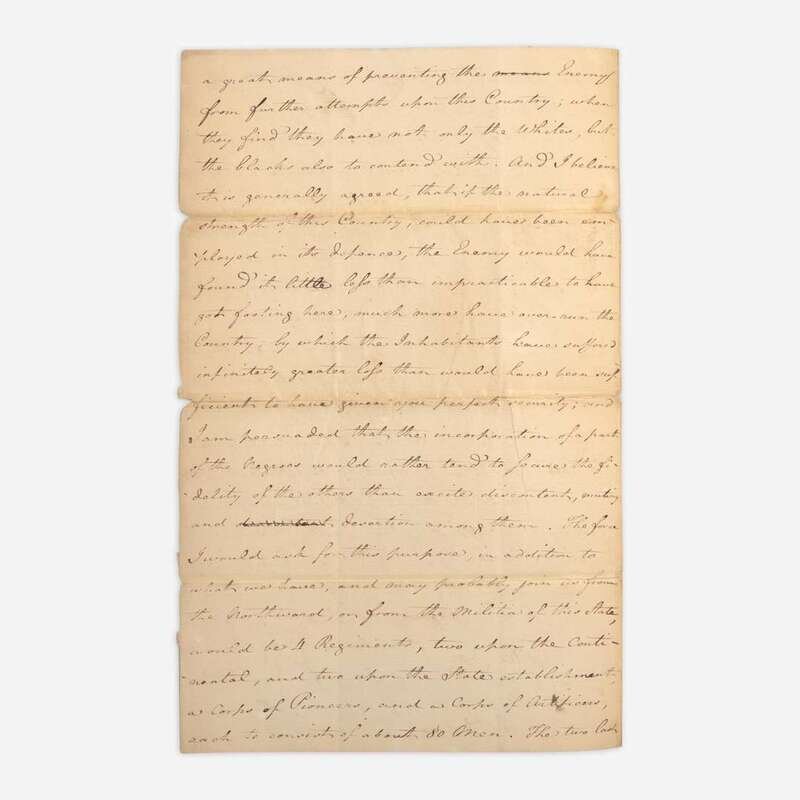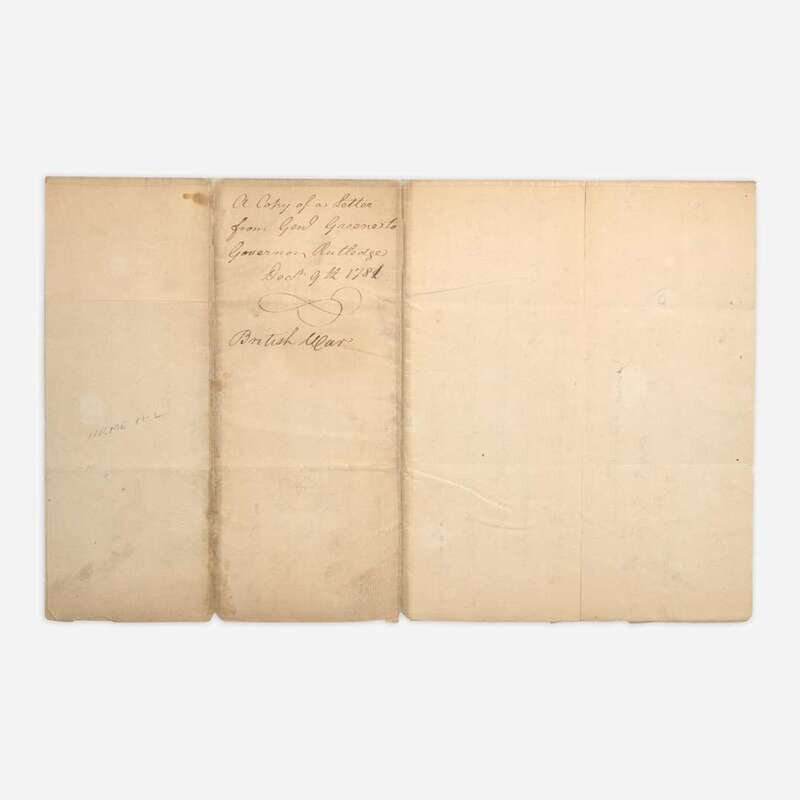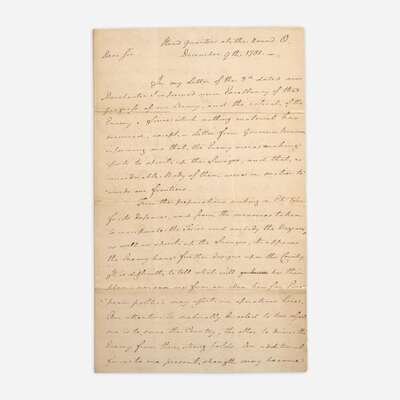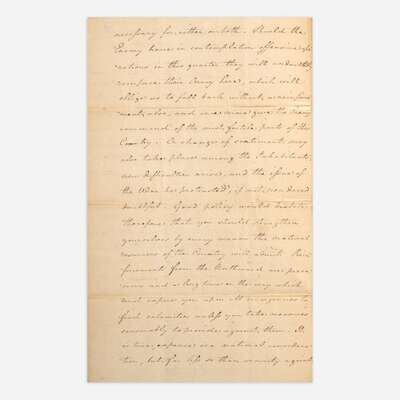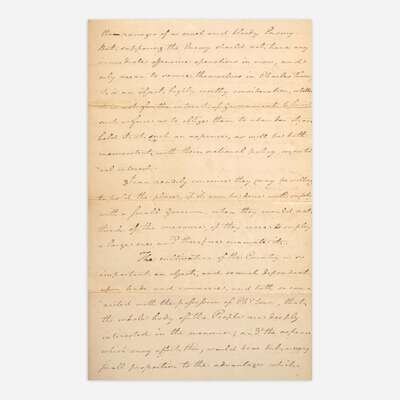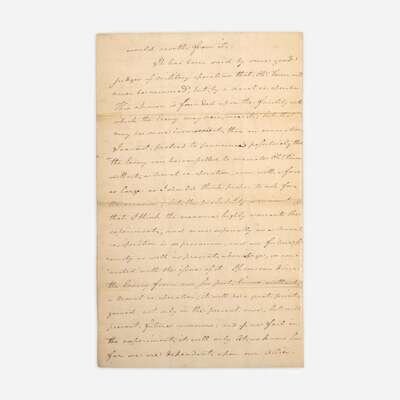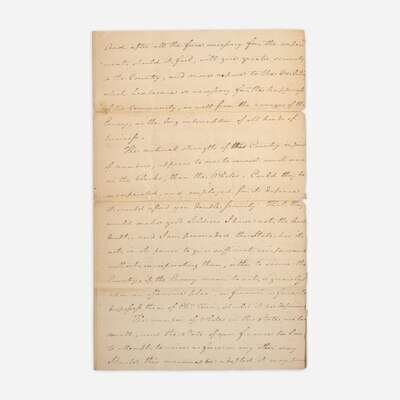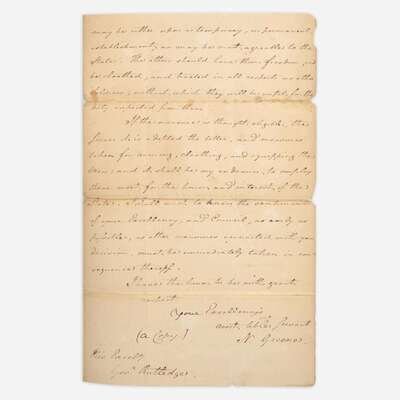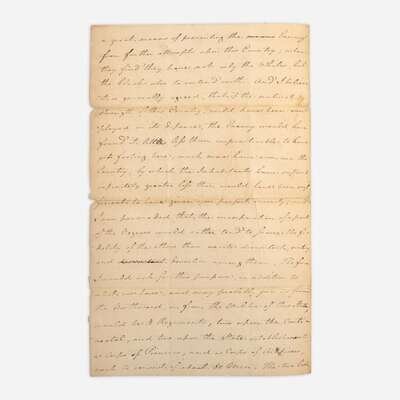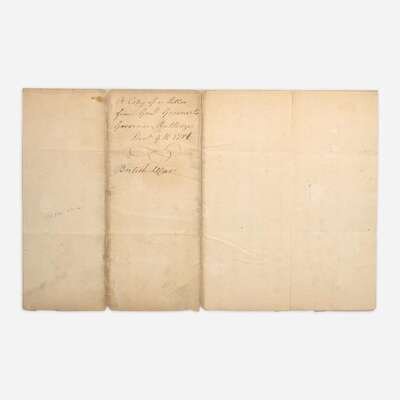Condition Report
Contact Information
Lot 10
Lot Description
"The others should have their freedom, and be cloathed, and treated in all respects as other Soldiers"
Head quarters at the Round O, (South Carolina), December 9, 1781. Two sheets, each folded to make four pages, 12 13/16 x 7 7/8 in. (325 x 200 mm). A lengthy seven-page contemporary secretarial copy of an autograph letter from Major General Nathanael Greene to South Carolina Governor John Rutledge; docketed on verso of integral leaf of second sheet, "A Copy of a Letter/from Genl. Greene to/Governor Rutledge/Decr. 9th 1782/British War". "2" in "1782" crossed out and replaced with "1" in pencil by a different, and likely, later hand. Creasing from contemporary folds; center vertical fold of each sheet reinforced with paper, other horizontal folds also reinforced with paper; scattered chipping along edges and small separations along folds. Lot includes an engraved image of Greene.
Two other versions of this letter are known. Another contemporary copy is held at the Georgia Historical Society (Item 1: Nathanael Greene Letters, MS 329), and is marked "Copy." The other letter, completely in Greene's hand, is now held in the Nathanael Greene Papers at the William Clements Library at the University of Michigan (item #55908). Textual differences exist between all three letters.
Over a year into the British occupation of Charleston, South Carolina, Continental Army Major General Nathanael Greene writes to South Carolina Governor John Rutledge, to apprise him of the current military situtation in his state, and of the measures needed to retake the highly fortified city back from the British: "From the preparations making in Chs.Town for its defence, and from the measures taken to incorporate the Tories and embody the Negroes as well as spirit up the Savages, it appears the Enemy have further designs upon this Country. It is difficult to tell what will be their plan; nor can we form an idea how far European politic's (sic) may effect (sic) our operations here. Our attention is naturally directed to two objects one is to cover the Country, the other to drive the Enemy from their strong holds...Reinforcements from the Northward are precarious and a long time on the way which must expose you upon all emergencies to fresh calamities unless you take measures reasonably to provide against them. It is true, expence is an national consideration, but far less so than security against the ravages of a cruel and bloody Enemy. But supposing the Enemy should not have any immediate offensive operations in view, and only mean to secure themselves in Charles Town, it is an object highly worthy consideration, whether it is not for the interest of government to furnish such a force as to oblige them to abandon it, or hold it at such an expence, as will be both inconsistent with their national policy, or national interest." Greene finishes his letter by requesting from Rutledge that a regiment of enslaved African troops be raised in order to fortify the army's numbers, and that they would be freed upon the end of their service: "The natural strength of this Country in point of numbers, appears to me to consist much more in the blacks, than the Whites. Could they be incorporated, and employed for its defence it would afford you double Security. That they would make good Soldiers I have not the least doubt, and I am persuaded the State has it not in its power to give sufficient reinforcements without incorporating them...The number of Whites in this State are too small...Should this measure be adopted it may prove a great means of preventing the Enemy from further attempts upon this Country; when they find they have not only the Whites, but the blacks also to contend with...I am persuaded that the incorporation of a part of the Negroes would rather tend to secure the fidelity of the others than excite discontent, mutiny and desertion among them...the others should have their freedom, and be cloathed, and treated in all respects as other Soldiers; without which they will be unfit for the duty expected from them. If the measure is thought eligible, the Sooner it is adopted the better, and measures taken for arming, cloathing, and equipping the Men; and it shall be my endevor to employ them most for the honor and interest of the State."
The British occupation of Charleston lasted for over two years following their crushing victory over the American Army in May 1779. In late 1780 Greene was sent south to take over command of the Southern Army, and his successful war of attrition against the British through the Carolinas and Georgia was instrumental in undermining their control of the region. Greene's skillful leadership cleared the British out of the South Carolina countryside and into the fortified garrison of Charleston, where his near constant attacks in the year following this letter led to their eventual evacuation on December 14, 1782. Greene's request to raise a regiment of Black troops--like South Carolina statesman John Laurens's attempt before him in 1779--was quickly rejected by the South Carolina legislature.
